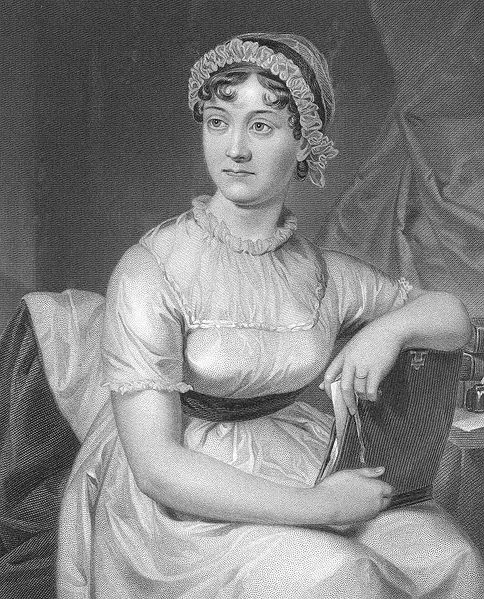Rediscovering Jane Austen: The Timeless Novelist Who Captured Hearts and Minds
Jane Austen remains a beloved author, whose works continue to enchant readers worldwide. Whether you’re a lifelong fan or new to her novels, there’s always something fresh to discover in Austen’s world. Her unique ability to blend humor, romance, and social commentary ensures her stories are as relevant today as they were in the 19th century. Here, we’ll explore Austen’s life, her novels, and the enduring appeal of her writing.
A Glimpse into Jane Austen’s Life
Jane Austen was born on December 16, 1775, in Steventon, Hampshire, England. She was the seventh of eight children in a close-knit family. Her father, George Austen, was a rector, and her mother, Cassandra Leigh, came from a higher social class. This blend of clerical modesty and genteel respectability influenced much of Austen’s writing, providing a backdrop for her sharp observations on social dynamics and class distinctions.
Austen began writing at a young age, creating stories and plays for her family’s amusement. Her early works, known as the Juvenilia, were filled with wit and satire, hinting at the brilliance to come. Despite the limited opportunities for women in her time, Austen was encouraged by her family to pursue her literary interests. This support was crucial in allowing her to develop her voice and hone her craft.
Austen’s first novel, “Sense and Sensibility,” was published in 1811 under the pseudonym “A Lady.” The book was well-received, and Austen continued to write and publish novels that would cement her place in literary history. She spent her final years in Chawton, a village in Hampshire, where she wrote some of her most famous works. Austen died on July 18, 1817, at the age of 41, leaving behind a literary legacy that continues to inspire and entertain.
The Novels of Jane Austen
Austen’s six major novels are celebrated for their intricate plots, memorable characters, and keen social commentary. Each novel offers a unique perspective on life, love, and society in Regency England.
1. Sense and Sensibility (1811)
“Sense and Sensibility” follows the fortunes of the Dashwood sisters, Elinor and Marianne, as they navigate the challenges of love and financial insecurity. The novel explores themes of reason versus emotion, highlighting the contrast between the practical Elinor and the passionate Marianne. Austen’s portrayal of the sisters’ relationships and their struggles with societal expectations remains compelling and relatable.
2. Pride and Prejudice (1813)
Perhaps Austen’s most famous work, “Pride and Prejudice,” introduces readers to the spirited Elizabeth Bennet and the aloof Mr. Darcy. The novel is a delightful exploration of love, class, and misunderstandings. Austen’s sharp wit and incisive commentary on the social mores of her time make this novel a perennial favorite. Elizabeth’s journey from prejudice to understanding, and Darcy’s transformation from pride to humility, create a dynamic and engaging romance.
3. Mansfield Park (1814)
“Mansfield Park” tells the story of Fanny Price, a poor young girl raised by her wealthy relatives at Mansfield Park. The novel delves into themes of morality, social class, and family dynamics. Fanny’s quiet strength and moral integrity set her apart from other Austen heroines, making her a unique and compelling character. The novel’s exploration of the effects of wealth and privilege on character and relationships is both thought-provoking and insightful.
4. Emma (1815)
In “Emma,” Austen presents a heroine who is charming, witty, and somewhat spoiled. Emma Woodhouse’s attempts at matchmaking and her gradual self-discovery form the crux of the story. The novel is notable for its humor and its exploration of the complexities of social relationships. Emma’s journey from arrogance to humility and from selfishness to self-awareness is both entertaining and enlightening.
5. Northanger Abbey (1817)
“Northanger Abbey” is a playful satire of Gothic novels, following the adventures of the imaginative Catherine Morland. The novel parodies the sensationalist literature of the time while also providing a charming coming-of-age story. Catherine’s journey from naivety to maturity, and her realization that real life is not like the novels she loves, make this a delightful and insightful read.
6. Persuasion (1817)
“Persuasion,” Austen’s final completed novel, tells the story of Anne Elliot and her rekindled romance with Captain Frederick Wentworth. The novel is more mature and introspective than her earlier works, exploring themes of regret, resilience, and second chances. Anne’s quiet strength and enduring love make her one of Austen’s most poignant and relatable heroines.
The Enduring Appeal of Austen’s Writing
Jane Austen’s novels have stood the test of time for many reasons. Her keen observations on human nature and society, combined with her wit and humor, make her stories both entertaining and thought-provoking. Austen’s characters are complex and relatable, and her exploration of themes such as love, friendship, and personal growth resonates with readers across generations.
Austen’s writing is characterized by its clarity and elegance. Her prose is both concise and richly detailed, allowing readers to immerse themselves in the world she creates. Her use of irony and satire adds depth to her social commentary, making her novels both amusing and insightful.
One of Austen’s greatest strengths is her ability to create memorable and engaging characters. From the spirited Elizabeth Bennet to the introspective Anne Elliot, Austen’s heroines are strong, intelligent, and nuanced. Her heroes, too, are complex and evolving, often challenging societal norms and expectations.
Austen’s novels also offer a window into the social and cultural dynamics of Regency England. Her exploration of issues such as class, gender, and marriage provides valuable insights into the historical context of her time. Yet, despite the historical setting, her themes and characters remain relevant and relatable.
Austen’s Legacy and Influence
Jane Austen’s influence extends far beyond her novels. She has inspired countless adaptations, from films and television series to modern retellings and spin-offs. Her works have also inspired numerous authors, who have drawn on her themes and style to create their own stories.
Austen’s novels have been adapted into numerous films and television series, each bringing her characters and stories to new audiences. Notable adaptations include the 1995 BBC miniseries “Pride and Prejudice,” starring Colin Firth and Jennifer Ehle, and the 2005 film adaptation of the same novel, starring Keira Knightley and Matthew Macfadyen. These adaptations capture the essence of Austen’s writing, bringing her witty dialogue and rich characterizations to life.
Modern retellings of Austen’s novels have also found success. Books like “Bridget Jones’s Diary” by Helen Fielding and “Eligible” by Curtis Sittenfeld reimagine Austen’s stories in contemporary settings, highlighting the timeless nature of her themes. These modern adaptations demonstrate the enduring relevance of Austen’s work and its ability to resonate with readers across different cultures and eras.
Austen’s influence can also be seen in the works of other authors. Many writers, from the Brontë sisters to contemporary novelists, have drawn inspiration from Austen’s exploration of social dynamics and character development. Her focus on the complexities of human relationships and her use of irony and satire have left a lasting mark on the literary world.
Jane Austen in the Modern World
In today’s world, Jane Austen’s works continue to captivate readers and inspire new generations of fans. Her novels are studied in schools and universities, and her influence can be seen in various forms of media and popular culture. Austen’s ability to blend humor, romance, and social commentary ensures that her stories remain relevant and engaging.
Austen’s works have also found a place in the digital age. Online communities and fan groups dedicated to Austen’s novels provide a space for readers to share their love for her stories and discuss their interpretations. Websites, blogs, and social media platforms offer endless opportunities for Austen enthusiasts to connect and explore her works in new and creative ways.
The popularity of events like the Jane Austen Festival in Bath, England, and the numerous Austen-themed tours and literary societies around the world, further attest to her lasting appeal. These events celebrate Austen’s life and works, bringing together fans from all over the globe to share in their appreciation of her writing.
Austen’s novels also continue to inspire academic scholarship. Researchers and scholars delve into her works to uncover new insights into her themes, characters, and social commentary. Austen’s ability to capture the nuances of human behavior and social interactions ensures that her novels remain a rich source of study and analysis.
Personal Reflections on Jane Austen’s Works
As a long-time admirer of Jane Austen, I find her novels to be a constant source of delight and inspiration. Each time I revisit her stories, I discover new layers of meaning and fresh insights into her characters and themes. Austen’s ability to create rich, detailed worlds and relatable characters makes her novels endlessly rereadable.
One of the aspects I appreciate most about Austen’s writing is her wit and humor. Her clever use of irony and satire adds depth to her social commentary, making her novels both entertaining and thought-provoking. Austen’s characters, with their flaws and virtues, feel real and human, allowing readers to connect with them on a personal level.
Austen’s exploration of themes such as love, marriage, and social class continues to resonate with readers today. Her stories remind us of the importance of self-awareness, personal growth, and staying true to oneself. The journeys of her characters, as they navigate societal expectations and personal desires, offer valuable lessons and insights.
Conclusion
Jane Austen’s enduring legacy as a novelist is a testament to her remarkable talent and insight. Her ability to capture the complexities of human nature and social dynamics ensures that her works remain relevant and engaging for readers of all ages. Whether you’re revisiting an old favorite or discovering her novels for the first time, Austen’s stories offer a rich and rewarding reading experience.
For those who have yet to explore Austen’s world, I encourage you to dive into her novels and experience the charm, wit, and wisdom that have captivated readers for centuries. And for long-time fans, there’s always something new to discover and appreciate in her timeless works. Jane Austen’s novels continue to enchant and inspire, proving that great literature truly transcends time and place.
Subscribe to our newsletter and get two free novels!



